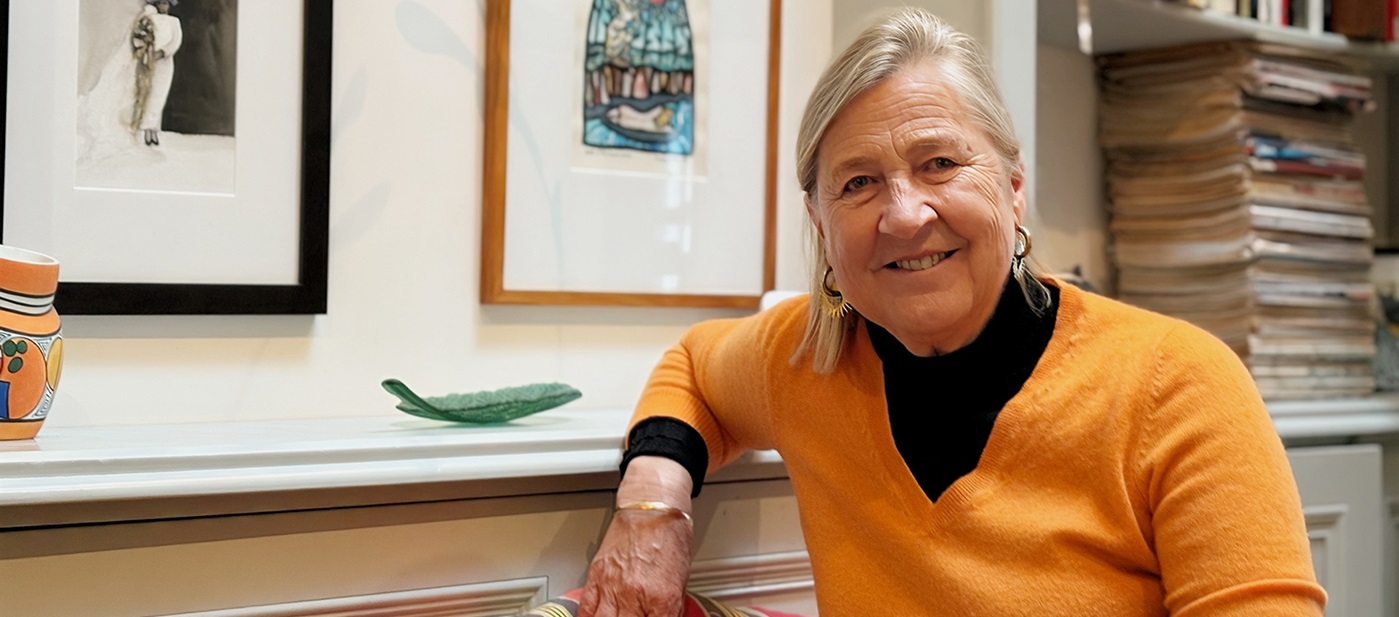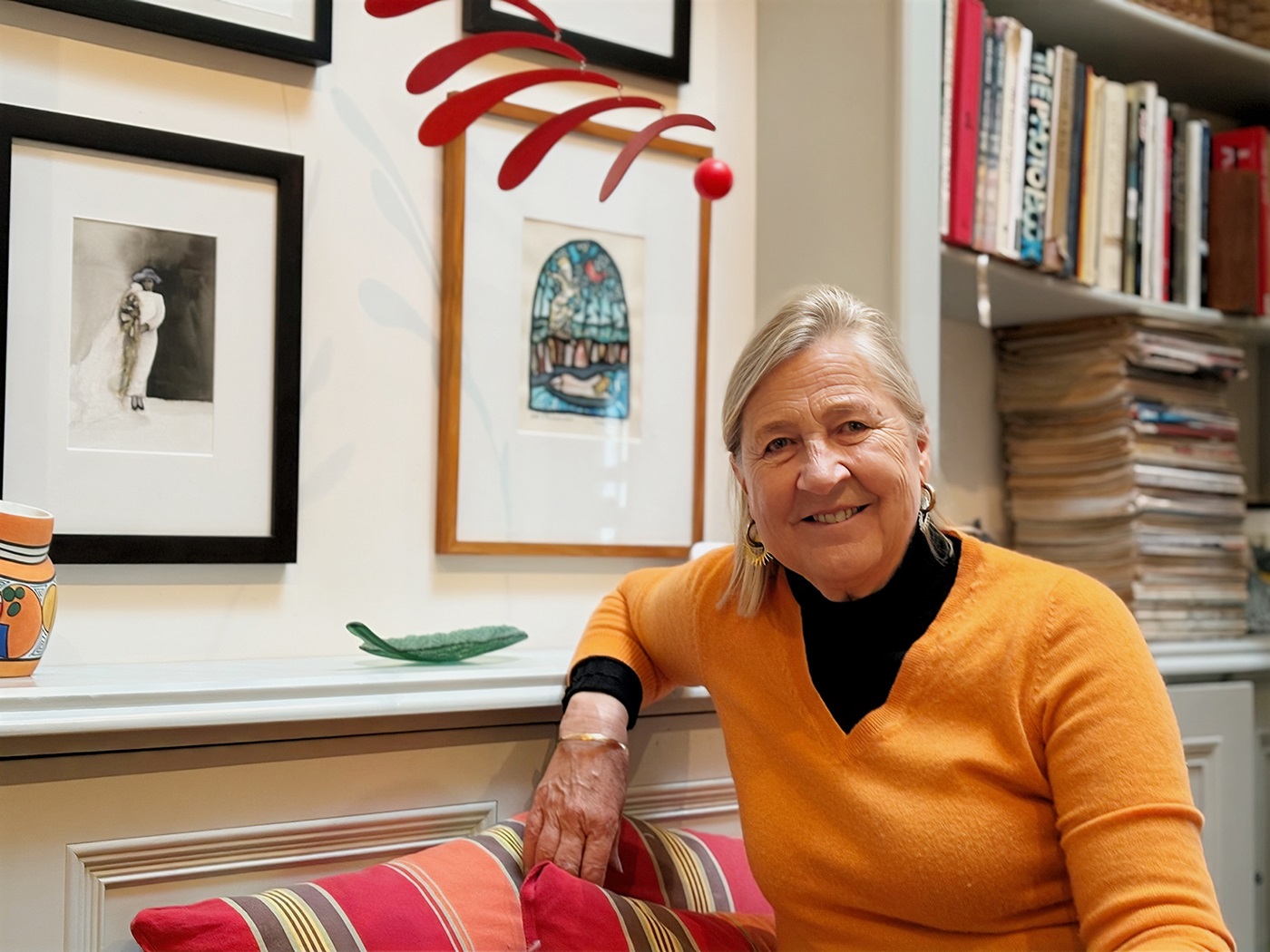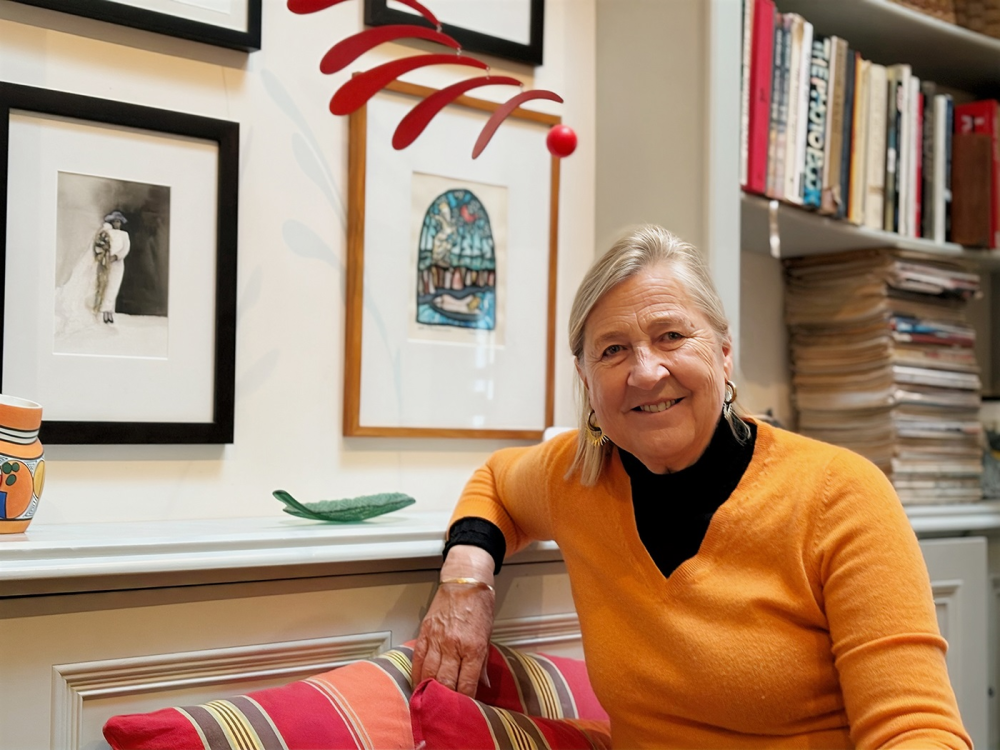
Some people put huge effort into so many endeavours that an official honour seems almost inevitable – but rarely expected.
So it is with Sue Elliott, who was made an Officer of the New Zealand Order of Merit (ONZM) in the 2025 King’s Birthday honours.

Sue Elliott ONZM: “I enjoy pretty much everything I do. I’m project driven. I’m very happy to do a strategy and then roll up my sleeves and make it happen. Photo Ōtaki Today
Her citation says she has made substantial contributions to promoting arts, sports and heritage in Wellington.
It seems an understatement given her prodigious workload – though calling it work would not be a term Sue would use herself.
At her Ōtaki home she shares with recently retired criminal lawyer husband Craig Smith, she acknowledges that a good deal of her time is taken up with pro bono “work”.
“I don’t think I’ve been paid for any of it,” she says, referring to the list of achievements that led to her award. She certainly doesn’t mind, given the satisfaction she gets in helping where she can.
“I had parents who were huge contributors to the community. The seven of us kids never questioned whether we would do that.”
Sue’s source of income is instead consultancy in communications and marketing.
Art is at the core of most of the work she has done in Wellington.
“I enjoy pretty much everything I do,” she says. “I’m project driven.
“I’m very happy to do a strategy and then roll up my sleeves and make it happen. I love to see something through from start to finish.”
Sue says she’s been lucky enough to work with some great teams of people who love Wellington, which has made everything she’s been involved in much easier.
Although the Wellington arts scene took a hit after the earthquakes of 2013, when many venues became unusable, the arts are still a big part of what makes Wellington a good place to visit and live.
“There’s still a huge amount of creativity happening.”
Sue was a founding trustee in 1995 of the Wellington Museums Trust. She was a board member of the Wellington International Festival of the Arts for 12 years – her understanding of commercial sponsorship helped raise several million dollars for the festival.
She has been a trustee of Wellington Sculpture Trust since 2002, becoming chair in 2013 and only recently stepping down, though still a trustee. She led the fundraising and installation of six permanent sculptures, and instigated the 4 Plinths Sculpture Awards and Wellington’s annual PARKing Day, which draws attention to the city’s open spaces.
In 2018, Sue co-founded Public Art Heritage Aotearoa New Zealand to document, promote and protect New Zealand’s 20th century public art works and preserve a unique facet of the country’s history and identity. A new website lists the artworks – an ongoing project is to add information about each of the artworks and the artists.
She served on the Wellington Stadium Development Committee, when there had been sports groups, administrators, local and central government all lobbying for a say in how a stadium should be used.
Sue played a pivotal role in selling $15 million worth of stadium memberships, and had 15 years on the Wellington Regional Stadium Trust. She won a TVNZ marketing award for her fundraising and marketing campaign for the stadium.
Sue has also held key roles on the National Trust Board of the Life Education Trust, the New Zealand Medals Trust, the Bougainville Library Trust and in 2020 she received a Winston Churchill Fellowship.
Although Sue says she’s only recently learned to say no, she still has plenty to do and no sign of slowing down. She regularly commutes to Wellington, appreciating the improved access via the expressway and Transmission Gully.
What she is grateful for is her retreat in Ōtaki, where she is able to relax surrounded by old trees and established gardens. She and Craig have lived in Ōtaki for only the past year.
In choosing Ōtaki, Sue says she didn’t want somewhere that “felt like God’s waiting room”.
“We came here [from Wellington] so we could still be close to Wellington and because we wanted to be part of a community that was diverse and interesting,” she says. “Ōtaki has all that in spades. We love it here.”
OTHER STORIES


